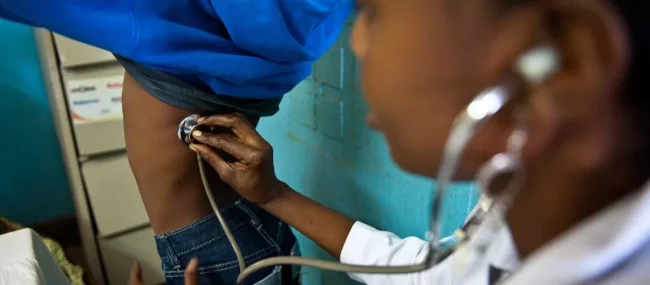This blog is from the World Bank blog series, ‘Investing in Health’. Investing in health develops human capital and promotes a quicker, more inclusive economic recovery. It argues that progressing universal health coverage (UHC) by elevating health financing in the political and policy agenda will become the single most important element in advancing health and economic outcomes.
The macro-fiscal reality is set to deteriorate, constraining public spending envelopes. The latest update in the “ From Double Shock to Double Recovery ” projects that government health spending will remain lower than before the pandemic in 23% of the 177 countries studied and only marginally increase in 39% of countries.
The World Health Organization’s Global Health Expenditure Report 2022 provided a promising picture of the health financing response during the start of the pandemic. In 2020, government health spending per capita rose in low and lower middle-income countries by an impressive 18.6% and 14.9%, respectively. The priority given to health in public budgets rose across most countries.
Efforts to expand fiscal space for health need to go hand in hand with ensuring health financing arrangements cover vulnerable families. Earlier this year, Nigeria passed legislation expanding national health insurance coverage to all, including subsidising an additional 83 million vulnerable people. This is an example of an important step taken to protect families from financial hardship while accessing health services.
Recommendations
- Budget prioritization towards health, while deferring noncritical areas of spending, is sound economic policy.
- Spending efficiently and effectively helps make less go further.
- Design equitable health financing policies that expand health coverage and improve financial protection for vulnerable families.
- Design health financing arrangements for sustainable impact.
- Inclusive partnerships between ministries of finance and health, and with civil society and external partners, would facilitate mobilizing and optimizing resources.


